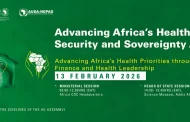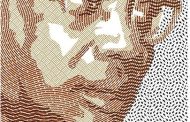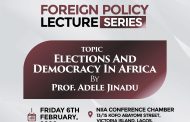It is yet to be part of the broad consciousness of the populace that even career diplomats owe the society an account of their tour of duty. As such, neither the society demands that from them nor do the career diplomats try. There is a particular disincentive to this: a society where everything is a secret, including the ones that everyone else has heard or encountered in spaces of the public sphere, the account from the diplomatic arena is sure to be the last to come.
So, the first significance of this effort from MK Ibrahim, one of the well located recent career ambassadors, is that he is breaking from a tradition and turning on himself to offer a situated assessment of the policy space where he served. As a product of the radical consciousness that informed scholarship in their undergraduate training, much is expected from the book.
Without MK undermining the diplomat’s careerism of saying the most nasty thing in a nice, inviting manner, this book will still scatter many otherwise well guarded accounts. It will explode many narratives but in a diplomatically fascinating manner. Intervention cannot say how much it is like this all the way down but it is difficult to see how some narratives may be endorsed in any nice ways.
The expectation is that others will follow the example of the emergent author. It is those accounts delivered in book forms that provide the repository for further reflection in the spaces of articulation of the Nigerian State and the implication of that for place-making in world politics as it concerns Nigeria. If Nigerian career diplomats, military commanders and academics do not write, then their British, American and other counterparts will dominate the global discursive space where the politics of place – making takes place.
Intervention can be sure this will be a reconvening of the Nigerian diplomatic establishment in the past few decades. It is worth looking forward to.




























